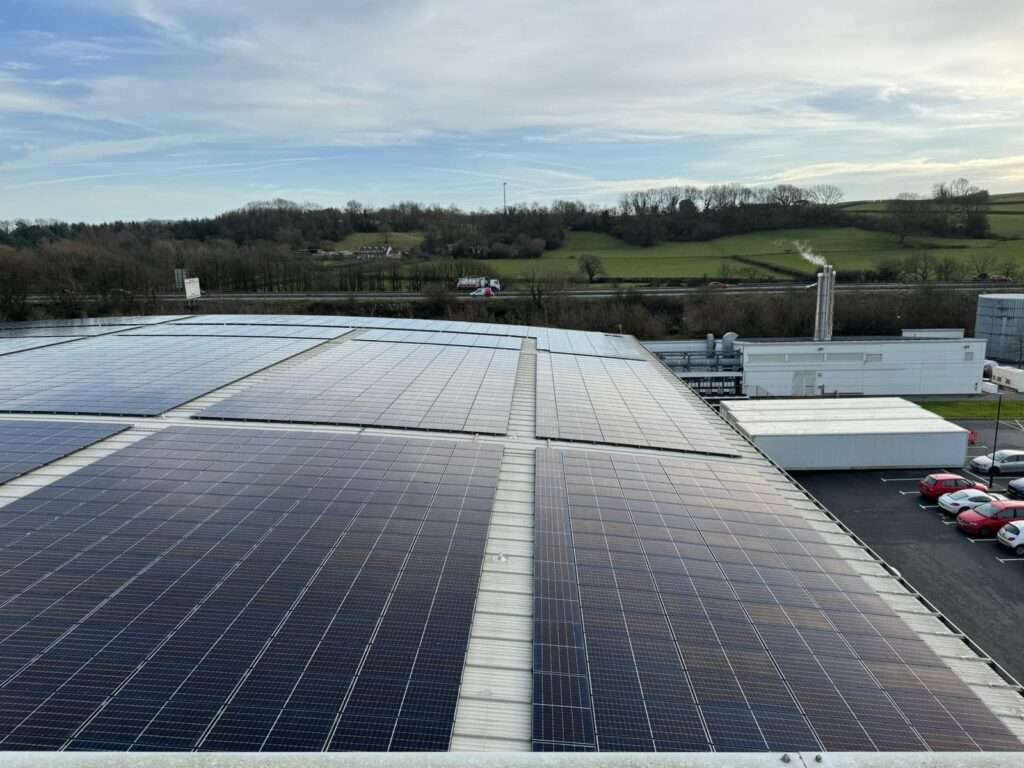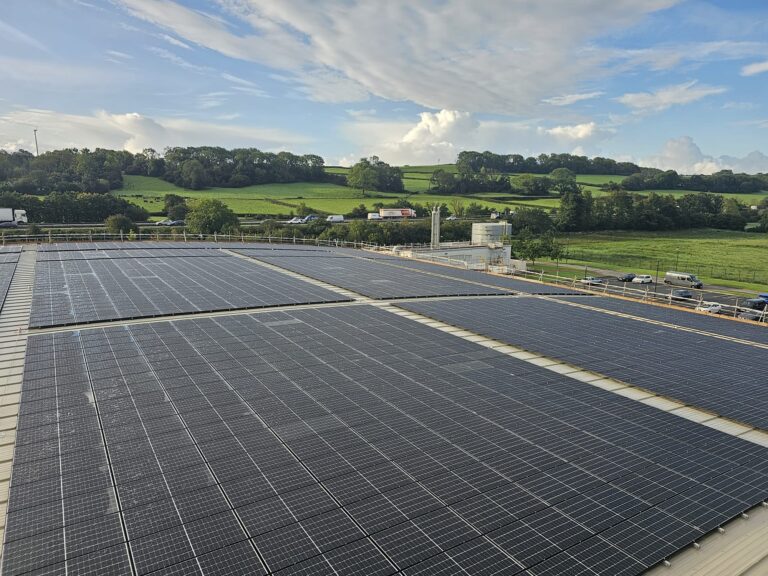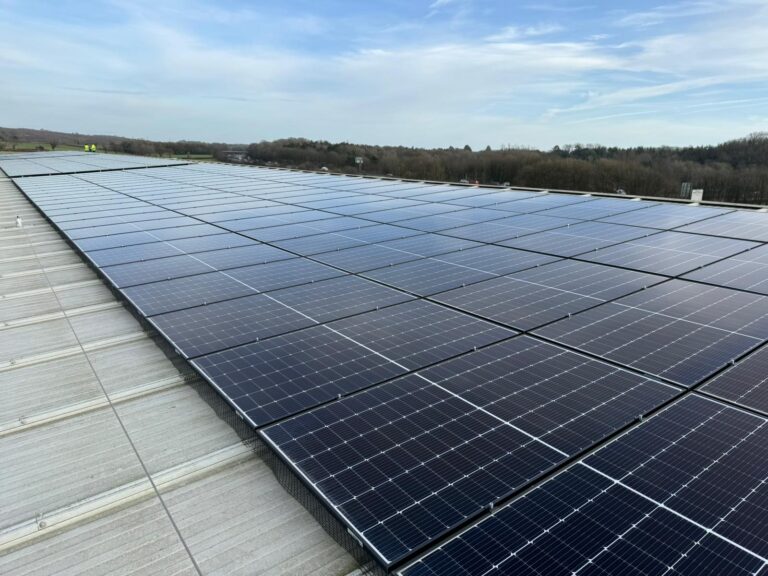How DO Solar Panel Incentives and Solar Panel Tax Rebates Work?
Advantages of solar power for business
Solar power for business offers numerous advantages, however, the initial investment can be considerable, with installation costs for small to medium-sized businesses ranging from £30,000 to £100,000.
While this represents a significant expense, the UK government offers solar panel grants for businesses to help transition to renewable energy. In short, financial support is available to help with the installation of solar photovoltaic (PV) panels, making the shift to solar power more accessible for British businesses.
Installing solar PV panels can significantly reduce electricity bills, leading to substantial long-term savings, especially as energy prices continue to rise. By generating your own electricity, your business becomes less dependent on the grid, offering greater stability and control over energy costs.
Switching to renewable energy also helps reduce your carbon footprint, which can boost your brand image and attract eco-conscious clients and partners. Additionally, a commercial solar installation can increase the market value of your property, making it more appealing to potential buyers or renters.


The way Solar Panel Incentives & Solar Panel Tax Rebates Work
In the UK, the Government in its November budget is encouraging commercial enterprises to invest in renewable energy through tax incentives, primarily capital allowances. These solar panel incentives mean that as well as a significant reduction in your energy costs businesses can take advantage of solar panel rebates by claiming back the cost of installing solar panel systems.
Annual Investment Allowance (AIA)
Investing in solar panels for your business? If you want to own the system outright, you can unlock significant tax savings through the Annual Investment Allowance (AIA). This government-backed incentive allows you to deduct up to £1 million each year in qualifying capital expenses from your taxable profits.
This deduction covers your entire solar installation, including panels, inverters, mounting, and even grid connection costs.
Why It Matters
The AIA lets you write off 100% of your solar investment in the first year. This speeds up your return on investment and reduces upfront costs. It’s a smart way to lower your tax bill while investing in clean energy that decreases long-term operating costs.
Business Benefits at a Glance:
✅ Up to £1M per year in tax-deductible spending
✅ Faster ROI with reduced capital costs
✅ Immediate boost to cash flow
✅ Strengthens ESG credentials and energy resilience
At Excel Energy, we help businesses benefit from solar and maximise tax efficiency. From design to installation, we ensure your system provides strong operational and financial performance from day one.
Contact us today to make your solar investment work harder for your business.
50% First Year Allowance
Under the 50% First Year Allowance solar panel tax rebate scheme, companies can deduct half the cost of new solar PV panel installations from their profits in the first year, reducing their Corporation Tax bill. The remaining 50% of the cost is written down at a 6% rate in subsequent years. Previously, solar panels qualified only for the 6% special rate writing down allowance.
Although this 50% First Year Allowance was initially set to expire on 31st March 2023, the 2023 Spring Budget extended it by three years, now lasting until 31st March 2026.
Enhanced Capital Allowance (ECA) Scheme:
This government incentive for solar panels allowance allows businesses to deduct the full cost of their solar plant from their profits before tax. Businesses can claim up to £1 million for plants and machinery.
Salix Finance:
A government-backed scheme that provides interest-free loans for public sector businesses to invest in energy-efficient projects.
Smart Export Guarantee:
This government-backed scheme allows owners of solar installations to export excess electricity back to the grid and receive payments for it.
Green Deal:
The Green Deal grant for solar panels is a program aimed at helping households and businesses enhance property energy efficiency, thereby reducing greenhouse gas emissions across the UK. Through this scheme, individuals and businesses can receive advice on energy-saving improvements, obtain quotes, and arrange for the installation of recommended measures.


Other Solar Panel Incentives
Since April 2022, VAT has been reduced to 0% for certain energy-saving products, including solar panels and their installation. This reduced VAT rate will remain in place for five years, offering residential customers an excellent opportunity to lower their energy expenses by investing in solar photovoltaic systems.
Residential adoption of solar panels is further supported by additional incentives. The Energy Company Obligation 4 (ECO4), which began on 1st April 2022 and will run until 2026, directs £4 billion in funding toward low-income and vulnerable households to help reduce their energy costs.
Additionally, the Smart Export Guarantee (SEG), in place from 1st January 2020 and REGOs, renewable energy guarantees of origin, enables households to earn payments for any excess electricity they export to the National Grid.
Claiming back solar panel tax rebates
All UK businesses that pay Corporation Tax, including those eligible for the Farmers Productivity Grant, can take advantage of current solar panel tax rebates if they are legally permitted to install solar equipment. To qualify, the solar panel system must be permanently installed on your property and generate electricity specifically for business operations.
In certain cases, such as installations on listed buildings, planning permission may be required before construction and installation can proceed. As part of our feasibility study, Excel Energy would verify with your local council whether planning permission is necessary.

What The Government Says
The UK Government has set ambitious targets to power 20 million homes via solar by 2035, which would require a significant increase in solar power generation. Since ground and rooftop solar PV installations will play a major role in helping the Government to achieve its vision, it announced generous capital allowances to stimulate investment, back in March 2021 and November 2024.
While these temporary incentives were due to expire in March 2023, the Chancellor of the Exchequer effectively extended the tax cuts for a further three years, giving British businesses more time to implement solar PV panels and help reduce the UK’s dependency on fossil fuels.
In the 2024 Autumn budget, the UK government has committed £12 billion to accelerate our clean energy journey. This funding will be pivotal in:
✅ Expanding Offshore Wind: £6 billion earmarked to scale up offshore wind capacity, driving us closer to a renewable-powered future.
✅ Clean Energy Transition Fund: £4 billion dedicated to solar PV energy and hydrogen developments, positioning these technologies as central to our energy mix.
✅ Green Homes Grant: £2 billion to improve household energy efficiency, impacting 300,000 homes in the initial rollout phase.
Meanwhile, green transport is also received a substantial decarbonising transport investment:
EV Charging Infrastructure: The shift to electric vehicles (EVs) is central to the government’s decarbonization strategy. The 2024 budget allocated over £200 million for 2025-26 to speed up the rollout of EV charge points, including assistance for local authorities to install on-street charging stations across England. An additional £120 million is designated to support the purchase of new electric vans and the production of wheelchair-accessible EVs.
These green energy investments underscore a powerful shift toward a more sustainable, efficient, and low-carbon future for the UK!

Claiming the tax Relief for photovoltaic installations
The tax relief on your solar equipment is claimed via the business annual Company Tax Return. It’s worth bearing in mind that the claim must be submitted for the accounting period in which the equipment was bought.
Per HMRC guidelines, the date you bought the equipment is either:
✅ The date payment is due, if it’s more than four months after you sign the contract.
✅ The date you signed the contract, where payment is due within four months
Explore Our Range Of Solar Power For Business solutions Today
Solar panels have an average lifespan of 25 to 40 years, so you’ll want to invest in robust and proven technology to ensure a great ROI.
Excel Energy has a proven track record of providing commercial solar power systems for all industries, including manufacturing, agriculture, and commercial sectors.
Call our team of experts today for tailored advice on the ideal commercial solar panel solution to meet your energy needs and maximise your savings. Let us help you take the next step toward a sustainable, profitable future!
